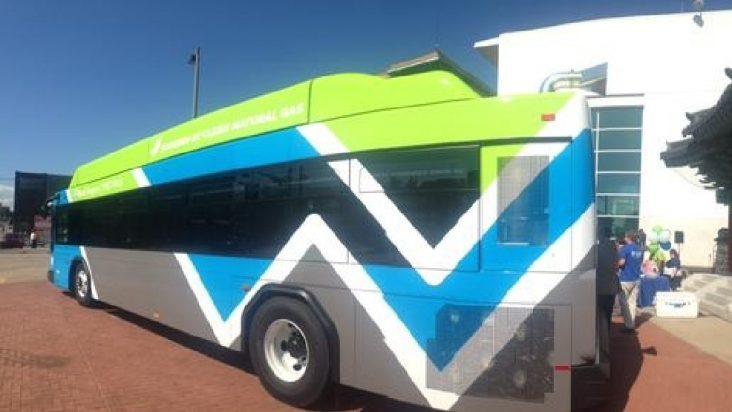Rock Region Metro awarded $4.9 million for electric buses
by June 28, 2021 3:42 pm 1,066 views

Rock Region Metro in central Arkansas was awarded $4,900,000 – its largest competitive grant award to date – in Federal Transit Administration funds to purchase up to five 40-foot battery electric buses (BEBs) and related battery charging infrastructure as part of the FTA’s Low- or No-Emission Grant program.
This is the fourth FTA competitive grant the transit outfit has received since receiving its first in 2016. The “Shock the Rock” project will place the Little Rock metro as the first region to operate zero-emission public transit vehicles in Arkansas.
Rock Region Metro is partnering with Proterra, a leading provider of battery electric buses in the United States and Canada, on the project. The Proterra buses have a range of 345 miles each day, which will reduce METRO’s fuel expenses throughout its transit service area. The vehicle charging infrastructure can be designed to charge mass transit vehicles on one side and multiple personal vehicles on the other.
“This is such as exciting opportunity for METRO to lead the push to put Little Rock on the map for electric vehicle charging infrastructure while making central Arkansas’ public transit system even more sustainable,” said Charles Frazier, Rock Region Metro CEO. “We are appreciative of the FTA’s focus on aiding public transit agencies with this innovative technology that will modernize our fleet and make it possible for METRO to reach its fleet conversion goal ahead of schedule.”
The “Shock the Rock” electric bus project supports Metroplan’s long-range metropolitan transportation plan goals, including improving vehicle fleet fuel efficiency, increasing the use of cleaner energy sources and providing infrastructure to support alternative fuel vehicle fleets.
The project also meets the FTA grant program’s environmental justice requirement, aiding the central Arkansas region in maintaining air quality standards and mitigating greenhouse gas emissions, which disproportionately affect people of color and low-income populations living in Pulaski County.
When these buses go into service, which is slated for Winter/Spring 2023, Rock Region Metro will have 31 compressed natural gas buses, up to five battery electric buses, and 10 or fewer diesel buses. The grant moves the transit service closer to its goal of phasing out diesel-fueled buses entirely by the end of 2025, earlier than anticipated – perhaps by 2023 or 2024, as additional bus purchases are made, it said.
A total of 49 projects across the country were awarded a share of $182 million in funding through the 2021 FTA Low- or No-Emission Grant program, which supports transit agencies in purchasing or leasing low- or no-emission buses and other transit vehicles that use advanced technologies such as battery electric and fuel-cell power to provide cleaner, more efficient transit service in communities across the country.
